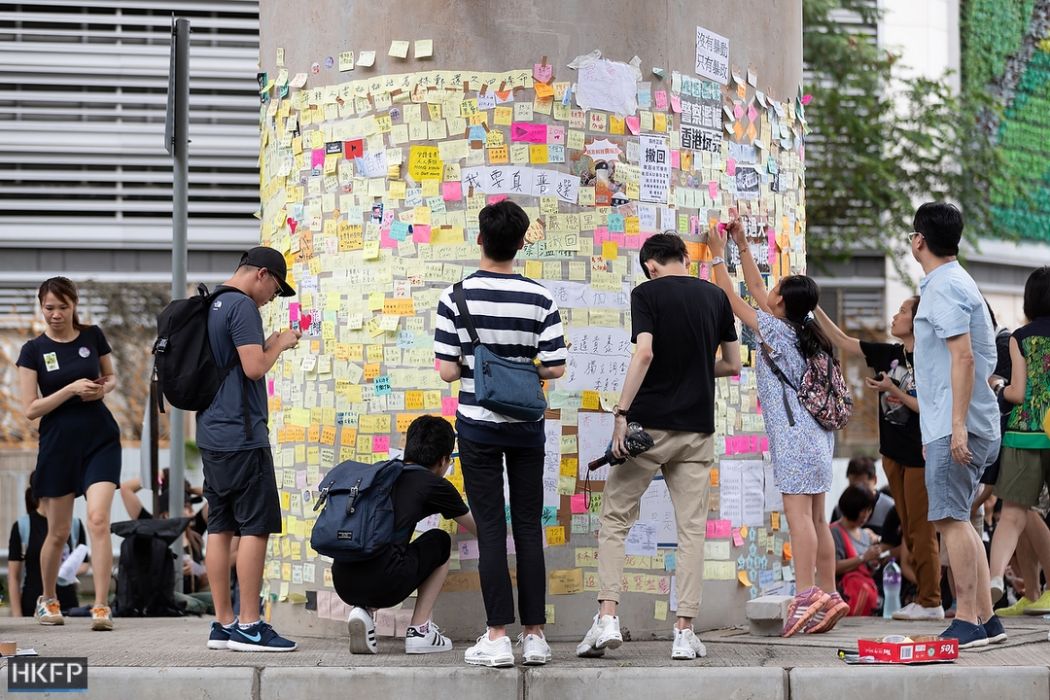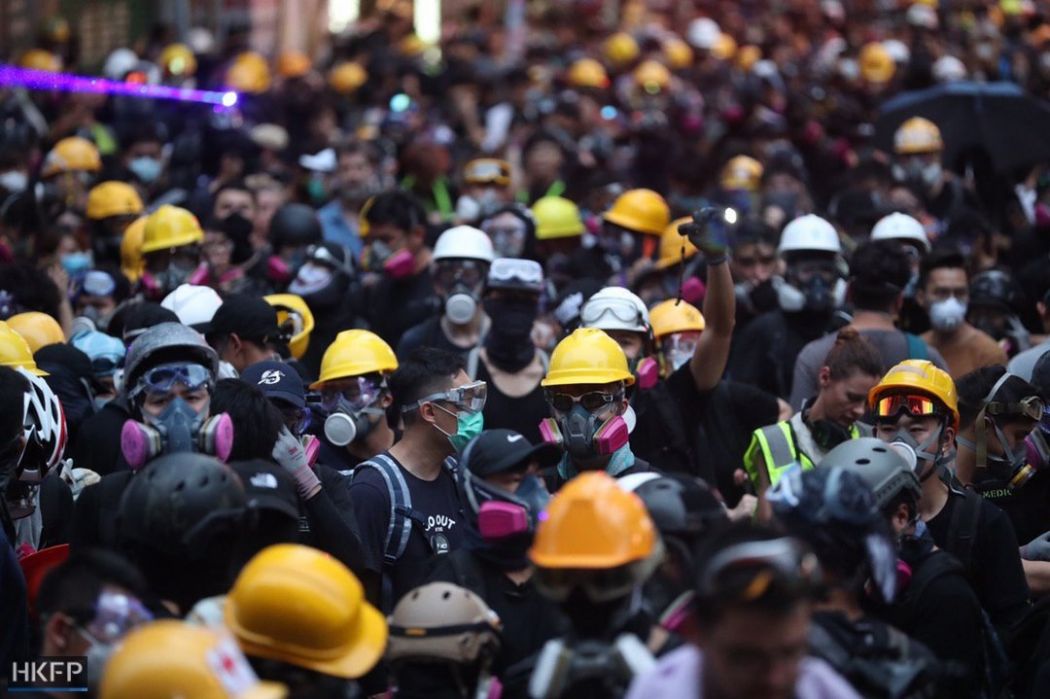By Chris Maden
Government, like tables manners and grammar, only gets noticed when bad. Unlike manners and grammar, bad government ruins lives.
Trust between the Hong Kong government and the people of Hong Kong has been eroding since 1997, culminating in its rapid and now near-total collapse in the past few weeks. Pro-Beijing people do not trust the Hong Kong government’s patriotism; the protestors do not trust the mainland government’s commitment to One Country Two Systems. Those stuck in the middle do not trust either side.

There is no shortage of explanations: the widening wealth gap between rich and poor, diminishing social mobility, a remote elite, interference from the mainland, meddling by foreign powers. What is curious is that there has been a non-economic explanation to hand for two and a half millennia.
When queried what he would put first in the ruling of a state, Confucius replied that he’d rectify names: “When names are not correct,” he said, “what is said will not sound reasonable; when what is said does not sound reasonable, affairs will not culminate in success; when affairs do not culminate in success, rites and music will not flourish; when rites and music do not flourish, punishments will not be exactly right; when punishments are not exactly right, the common people will not know where to put hand and foot.” This will lead to a collapse of social order, and the withdrawal of the Mandate of Heaven.
While the Mandate of Heaven is widely interpreted in the west as equivalent to the divine right of kings, I do not read it this way. Rather, I think the Mandate of Heaven is a kind of social contract: the people delegate power upwards to a government, foregoing certain rights, but in exchange for certain freedoms.
In both mainland China and Hong Kong, for example, we delegate economic management upwards in exchange for the right to spend as we please, to start businesses and the like.
Similarly, in order to retain cohesion, most societies entrust government with moderating the debate about what kind of society a nation wishes to be. This covers many different dimensions – the extent to which social services are socialised, education, law and order – and the understanding is that, so long as most people do not violently disagree with the government’s vision of what kind of society a nation will have, things will rumble along.

Plainly, a number of people in Hong Kong violently do disagree. Not all of them are out there vandalising MTR stations or taunting the police, but the fact that I violently disagree with Brazilian President Jair Bolsonaro’s trashing of the Amazon doesn’t mean I’m going to use physical violence.
So where do rectifying names enter the picture? Perhaps a good place to start is the demands. Here are the Chinese government’s:
“No one should harm the national sovereignty and security; no one should challenge the power of the central authorities and the authority of the Basic Law of the HKSAR; no one should use Hong Kong to infiltrate and undermine the mainland.”
And here are the protestors’:
“The full withdrawal of the suspended extradition bill; an independent investigation of police brutality; amnesty for arrested protesters; for Chief Executive Carrie Lam to resign; for the implementation of open and free elections.”

The funny thing is, there is no conflict between these. With the exception of a lunatic fringe, the protestors are not concerned with national sovereignty and security; the protestors do not have a presence within the PRC itself so cannot challenge the central authorities there, while within Hong Kong, they are challenging the central authorities only in as much as the central authorities are shielding the local authorities.
Everyone agrees on the authority of the Basic Law of the HKSAR; and, despite the conspiracy theories at the lunatic fringe on the pro-Beijing side, the discontent in Hong Kong is indigenous, not some CIA or MI6 or GRB plot.
Equally, the central authorities have already supported the suspension of the bill, and withdrawal is an administrative gesture; an independent investigation would do much to rebuild bridges between the force and the public, which would strengthen the force’s own and, by extension, central authority.
Amnesty for protestors – if extended also to the police – is a pre-condition for an independent investigation to succeed; Carrie Lam’s resignation is her business and should be a matter of indifference to the central authorities; and the implementation of open and free elections is guaranteed by the Basic Law that the central authorities themselves entreat us to uphold.

So it would seem that there’s more common ground than meets the eye. But the above apologies, of course, miss the pivotal issue. The pivotal issue is all about names.
“Sovereignty” resonates so little with Hong Kong’s global citizens as to be almost a non-concept; to the CCP, a global citizen who denies his ethnicity is a traitor.
To most Hong Kong people, brought up under the rule of rather than by law, the government’s power is constrained by law; to the CCP, the relationship is exactly the opposite.
As to “infiltration,” Hong Kong is Asia’s World City and as such invites, welcomes and interacts with foreign ideas and influences all the time; to the CCP, the starting premise is that all foreign ideas, influences and actions are malign.
So where do we go? Hong Kong’s problems are political problems and war, as Clausewitz said, is the continuation of politics by other means. War, to put it a different way, is an admission of failure. Hong Kong now, today, is one step away from civil war.
And, as Stephen Vines pointed out in his column last week, while the CCP could have crushed the protests at any time in the past 14 weeks, something has stayed their hands.
Whatever that is, the first step on both sides might be to follow Confucius’s advice and rectify names. “When the gentleman names something, it is sure to be useable in speech, and when he says something, this is sure to be practicable. The thing about the gentleman is that he is anything but casual where speech is concerned.”
Chris Maden has lived in Hong Kong since 1987, studying Philosophy at Hong Kong University and obtaining a PhD in Sydney, Australia. He splits his time between writing (he is the current chairman of HK Writers’ Circle) and IT consulting.
